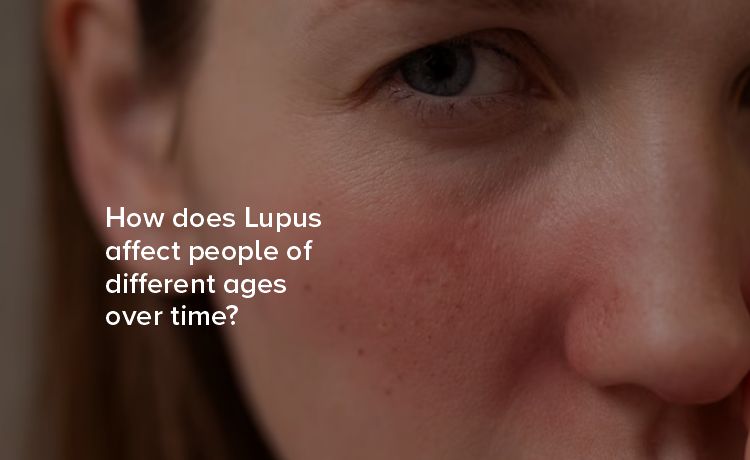
Lupus, a chronic autoimmune disease that can affect various parts of the body, from the skin and joints to organs such as the kidneys and heart, presents a unique set of challenges and symptoms at different stages of life. With its unpredictable flares and periods of remission, lupus affects individuals of various ages in distinctly different ways.
Lupus is relatively rare in children, but when it occurs, it tends to be more severe than in adults. Children may experience a wide range of symptoms, including fatigue, skin rashes, joint pains, and fever. These symptoms can significantly impact their quality of life, affecting school performance and social interactions.
Due to the aggressive nature of lupus in younger patients, treatment often includes high doses of corticosteroids and immunosuppressants, which can have long-term side effects, including growth suppression and increased susceptibility to infections. It's crucial for parents and caregivers to work closely with pediatric rheumatologists to manage these risks and support the child's physical and emotional well-being.
For young adults, lupus can be particularly challenging as they transition into independence and pursue higher education or careers. This age group is also when lupus is most commonly diagnosed, especially among women of childbearing age. The disease can affect not only their physical health but also their life plans, including career choices and family planning.
Fatigue is one of the major challenges for young adults with lupus, making it difficult to keep up with the demands of daily life. Additionally, concerns about self-image and fertility can also take a toll on mental health. Access to comprehensive care, including mental health support and counseling on family planning, is essential for young adults with lupus.
In middle-aged adults, the focus often shifts to the long-term management of lupus and its complications. By this age, some individuals may have lived with the disease for decades, facing cumulative effects of the disease and long-term treatment. The risk of developing comorbid conditions, such as cardiovascular disease and osteoporosis, increases.
Managing lupus in middle age requires a holistic approach focused on minimizing disease activity, managing chronic pain, and preventing complications. Lifestyle changes, including a healthy diet, regular exercise, and stress management, become key components of care. Regular screenings for cardiovascular health, bone density, and other potential complications are vital.
Lupus in older adults can present additional diagnostic challenges, as symptoms may overlap with other age-related conditions. In some cases, lupus may be milder, but older patients are at an increased risk for comorbidities and may be more sensitive to medication side effects.
Treatment strategies for older adults with lupus often require careful balancing to manage the disease effectively while minimizing side effects. Geriatric rheumatologists and a multidisciplinary team approach can help address the complex needs of older adults with lupus, focusing on maintaining mobility, independence, and quality of life.
Lupus affects individuals differently across the lifespan, presenting unique challenges at each stage. Understanding these differences is crucial for providing patient-centered care and improving quality of life for those living with lupus. Advances in research and treatment continue to offer hope for better management of this disease, enabling individuals with lupus to lead fulfilling lives despite their diagnosis.
If you or a loved one is dealing with lupus, remember that you're not alone. Connecting with support groups, whether in your local community or online, can provide valuable resources and emotional support. Always consult with your healthcare provider for personalized advice and treatment plans tailored to your specific needs and circumstances. Citizens Specialty Hospital is the best Rheumatology Hospital in Hyderabad. Book an appointment with our expert now.